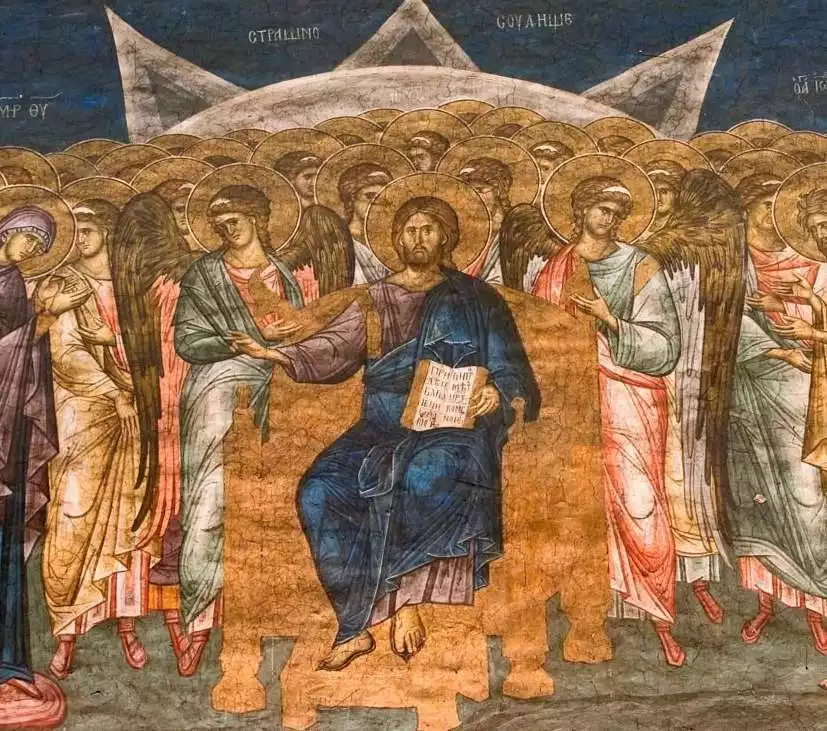
All Souls’ Day, observed annually on November 2nd, is a solemn Christian tradition dedicated to commemorating and praying for the departed souls. This day follows All Saints’ Day and is primarily recognized within the Catholic Church, although several other Christian denominations also observe it in various forms.
Etymological Analysis
The term “All Souls’ Day” derives from the Old English word ‘sawol’, meaning ‘soul’, and the Latin phrase ‘commemoratio omnium fidelium defunctorum’, translating to ‘commemoration of all the faithful departed’. This etymology underscores the day’s focus on remembering and praying for the souls of those who have passed away.
Typological Analysis
In typological terms, All Souls’ Day falls under the category of commemorative feasts in the Christian liturgical calendar. Unlike celebratory feasts, which honor events or figures, commemorative feasts are reflective, centered around solemn remembrance and spiritual contemplation.
Historical Context and Significance of All Souls’ Day
All Souls’ Day, with its emphasis on remembrance and prayer for the deceased, has roots stretching back to early Christian practices. Its origin is often attributed to Abbot Odilo of Cluny in the 10th century, who designated a day for the monks to pray for the souls in purgatory. This practice spread throughout the Christian world, eventually being adopted by the Catholic Church as a day of observance.
This day holds profound significance in Christian theology, particularly within Catholicism, which teaches the doctrine of purgatory – a transitional state where souls are purified before entering heaven. All Souls’ Day thus serves as a communal expression of hope and mercy, as prayers and masses are offered to aid these souls in their spiritual journey.
Biblically, while the specific term “All Souls’ Day” is not found, the concept of praying for the dead has scriptural roots. In the Second Book of Maccabees (12:44-46), a practice of praying for the deceased to be freed from sin is mentioned, aligning with the day’s central theme.
In the wider historical context, All Souls’ Day also reflects the human need to connect with and remember ancestors, a sentiment found in many cultures worldwide. This universality adds to its significance, making it a day not only of religious observance but also of deep human connection and reflection.
The observance of All Souls’ Day has evolved over centuries, incorporating various customs and traditions. In some cultures, it involves visiting cemeteries, lighting candles, and offering prayers at gravesites. These rituals symbolize light, hope, and the enduring bond between the living and the departed.
In conclusion, All Souls’ Day represents a key aspect of Christian observance, deeply rooted in theological and historical traditions. It is a day marked by solemnity and reflection, offering a moment for believers to remember, pray for, and feel connected to those who have passed on.
Cultural Practices and Modern Observance
All Souls’ Day, while rooted in Christian doctrine, has evolved to include diverse cultural traditions worldwide. In Mexico and other Latin American countries, it coincides with the ‘Día de los Muertos’ (Day of the Dead), a vibrant festival celebrating the lives of the departed with colorful altars, food offerings, and music. This amalgamation of indigenous and Christian practices highlights the day’s universal themes of memory and honor.
In Europe, particularly in Catholic countries, All Souls’ Day is marked by quieter, more reflective practices. Families often visit the graves of their loved ones, leaving flowers and lighting candles. In some regions, special meals are prepared, and stories about the deceased are shared, keeping their memory alive in communal consciousness.
Despite these varied cultural expressions, the core purpose of All Souls’ Day remains constant: a collective remembrance of the departed and a testament to the enduring human spirit in the face of loss and mortality.
All Souls’ Day serves as a poignant reminder of our shared humanity and the universal experience of loss and remembrance. It transcends religious boundaries, resonating with the innate human desire to connect with those who have passed. As a day of prayer and reflection, it offers solace and a sense of communal support, reminding us of the transient nature of life and the importance of cherishing memories.
In a world increasingly characterized by change and uncertainty, All Souls’ Day stands as a beacon of hope and continuity, inviting us to pause, reflect, and find peace in the timeless act of remembrance.
References
- “All Souls Day – Christianity.” Encyclopaedia Britannica. Accessed December 20, 2023.
- “All Saints and All Souls Days.” Simply Catholic. Accessed December 20, 2023.
- Brandeis University. “Guide to Religious Observances: Halloween.” Accessed December 20, 2023.
- Johnson, Todd M., and Kenneth R. Ross. Atlas of Global Christianity. Edinburgh: Edinburgh University Press, 2009.
- “All Souls’ Day in the United Kingdom.” Time and Date AS. Accessed December 20, 2023.
